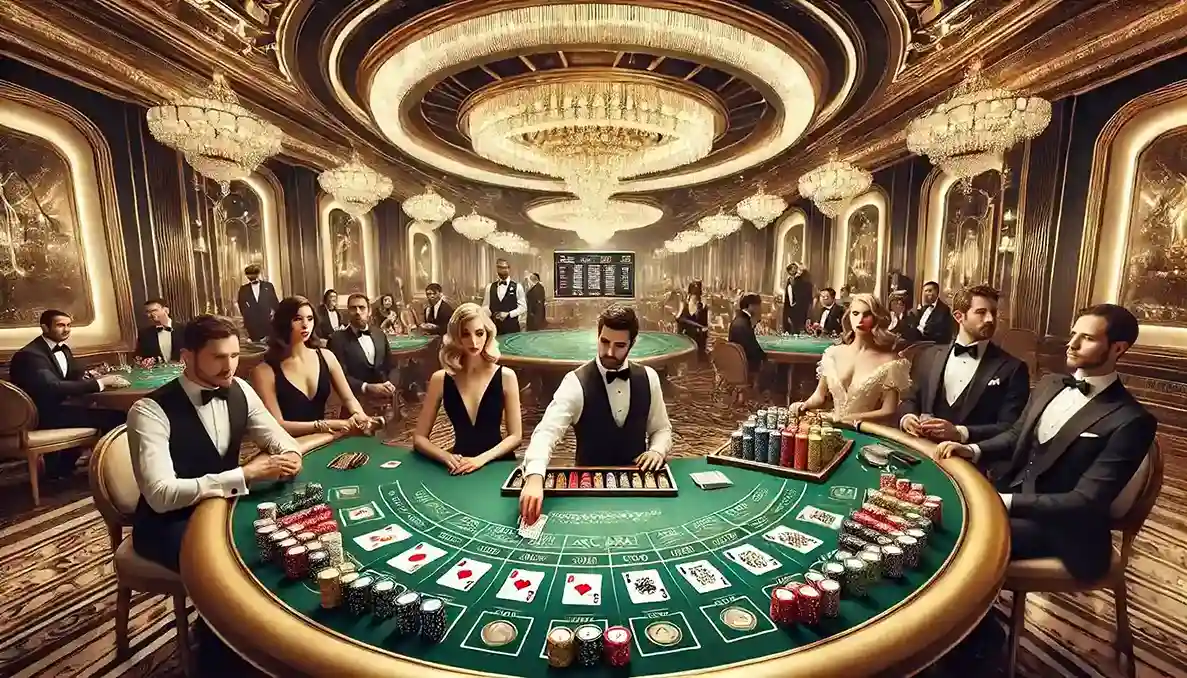- 3 Sep 2025

Baccarat, a game deeply rooted in elegance and tradition, has long captured the attention of gamblers worldwide. While it’s often praised for its simplicity and low house edge, there’s an undeniable mystique surrounding how players approach it—especially when it comes to superstition. Whether you’re in the glittering halls of Macau or the high-limit rooms of Las Vegas, it’s common to see rituals and beliefs shaping the decisions of even the most seasoned players. But why do these superstitions persist in a game governed by chance and mathematics?
In this article, we explore the role of superstition in Baccarat, examining its cultural foundations and psychological underpinnings, and how it continues to influence player behavior in modern casinos.
Superstitions are not exclusive to gambling, but the casino environment—filled with high stakes and unpredictable outcomes—makes them more potent. According to the American Psychological Association, superstition is a way for people to gain a sense of control in uncertain situations. In gambling, where randomness rules, believing in luck-enhancing behaviors provides emotional comfort and perceived agency.
This perceived control helps reduce stress and anxiety, making players feel more confident in their choices—even if those choices are statistically unsound.
In many Asian countries, especially China, superstitions are deeply ingrained in everyday life—and Baccarat is no exception. Macau, often called the “Gambling Capital of the World,” sees Baccarat accounting for over 80% of its casino revenue, making it fertile ground for superstition-driven play.
8 is considered extremely lucky in Chinese culture due to its phonetic similarity to “prosperity.”
4, on the other hand, is avoided because it sounds like “death.”
Players often request cards or seats based on numerology, and even casino designs in Asia incorporate feng shui to enhance luck.
Blowing on cards to “blow away bad luck.”
Squeezing cards slowly to “control” the outcome.
Avoiding tables where the dealer or previous player had a losing streak.
For more insight into how regional differences affect casino behavior, check out our post on Cultural Variations in Gambling Habits.
In Western casinos, while superstition may not be as ritualistic as in Asia, it still plays a role. Many players rely on gut feeling, lucky charms, or specific betting systems like the Martingale or Paroli, despite their lack of mathematical merit.
Wearing a lucky outfit or item.
Betting according to patterns, even in random outcomes.
Avoiding the number 13 or tables numbered as such.
These behaviors offer psychological reassurance, providing players with a perceived “edge” even when logic suggests otherwise.
Regardless of origin, Baccarat players share a wide array of superstitions:
| Superstition | Belief |
|---|---|
| Blowing on cards | Removes bad luck |
| Squeezing cards | Influences outcome |
| Betting streaks | Trusting “hot” tables or players |
| Avoiding early banker bets | Letting the table “warm up” |
| Lucky charms | Carrying objects believed to attract luck |
Many players also avoid touching the cards or chips after a loss, believing it could “taint” the next round.
While some superstitions are harmless quirks, others can significantly impact a player’s betting strategy and bankroll management. Players may chase patterns, skip bets, or abandon a winning strategy based on gut feeling or perceived omens.
This often leads to:
Irrational decisions not backed by probability.
Bankroll mismanagement due to chasing losses.
Overconfidence or fear-based play, influenced by emotion rather than odds.
Interestingly, some casinos use superstitions to their advantage. For example, they may design VIP rooms with specific color schemes, numbers, and layouts based on feng shui principles to make players feel more “in control.”
If you’re interested in how psychology further shapes gambling habits, check out our guide to Cognitive Biases in Casino Gaming.
Superstition is a powerful force in Baccarat. While it adds charm and cultural richness to the game, it’s important for players to recognize when beliefs begin to override reason. Understanding the origins of these superstitions can help gamblers make more informed, rational decisions while still enjoying the rituals that make Baccarat so iconic.
Whether you’re superstitious or not, it’s clear that belief plays a massive role in how people engage with the game. So the next time you squeeze a card or blow on it for luck, remember: while it may not change the odds, it could very well change your experience.